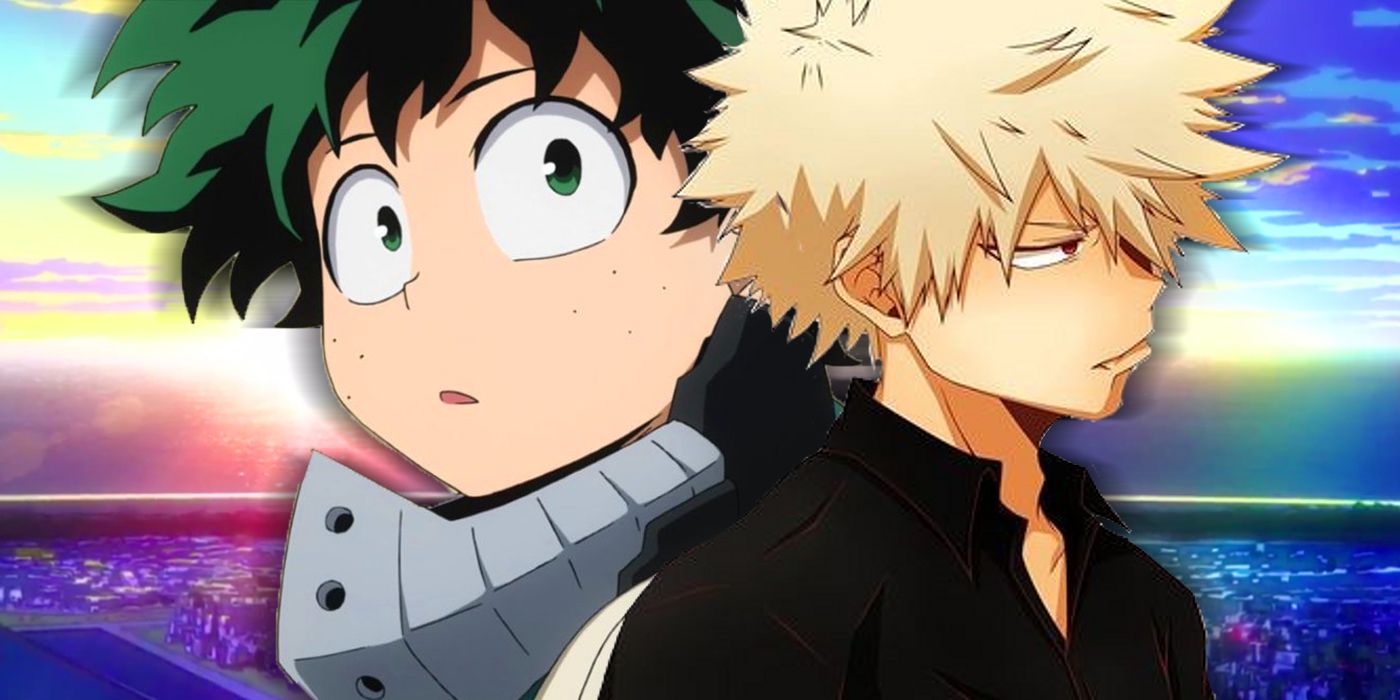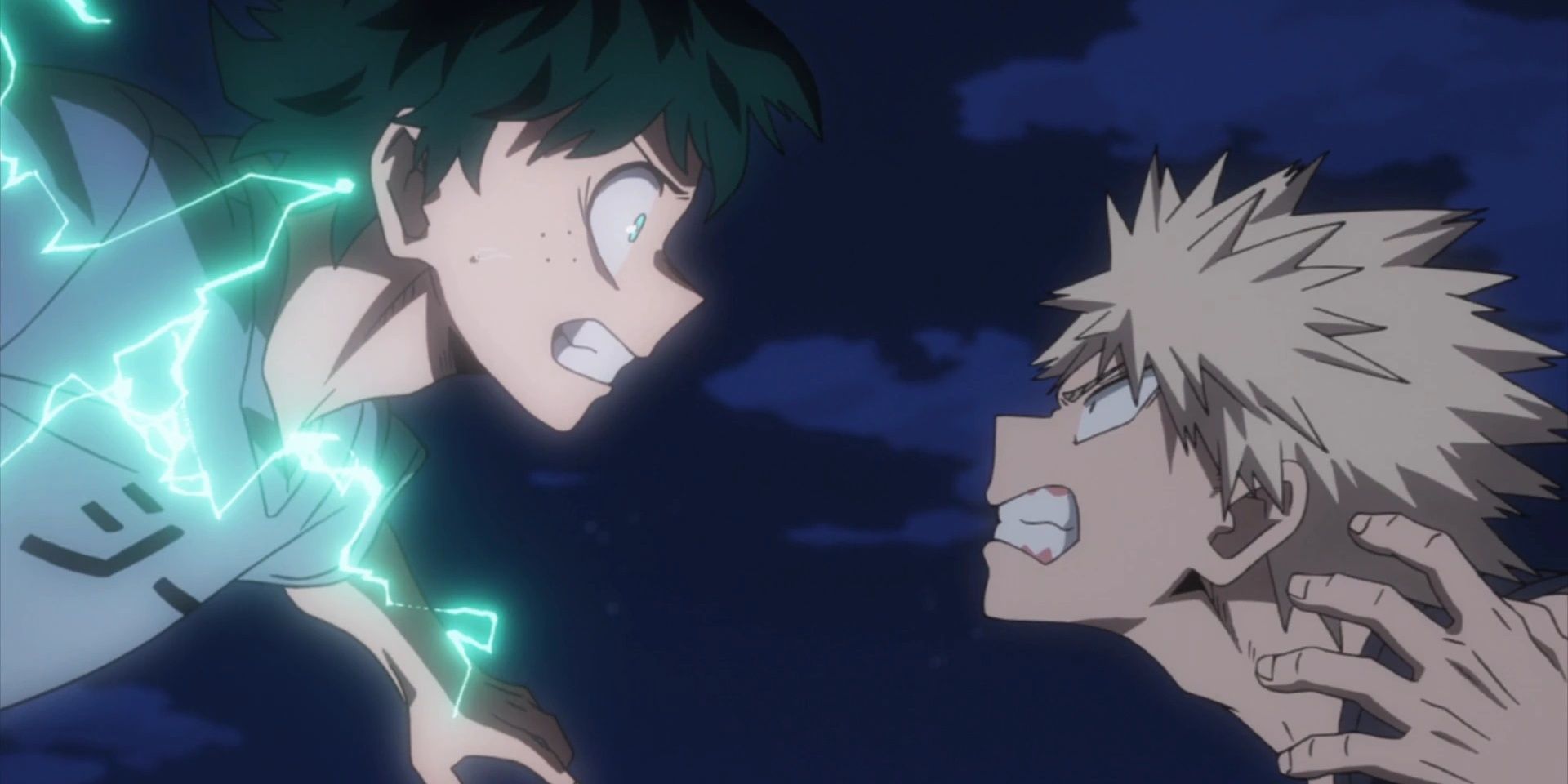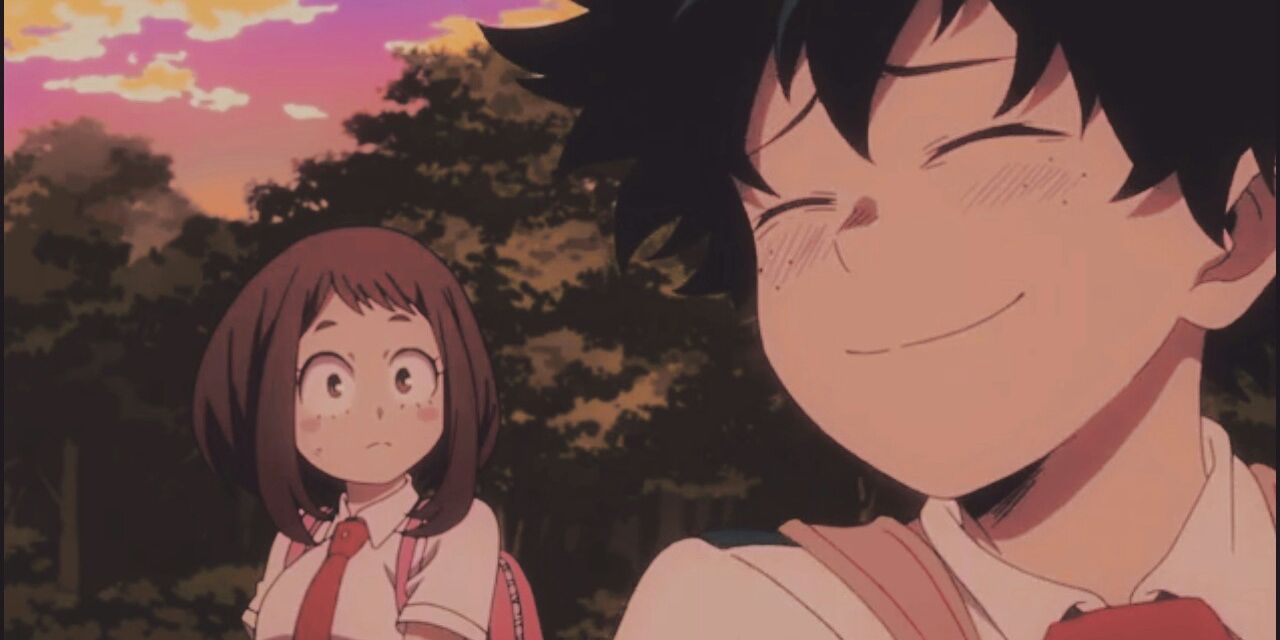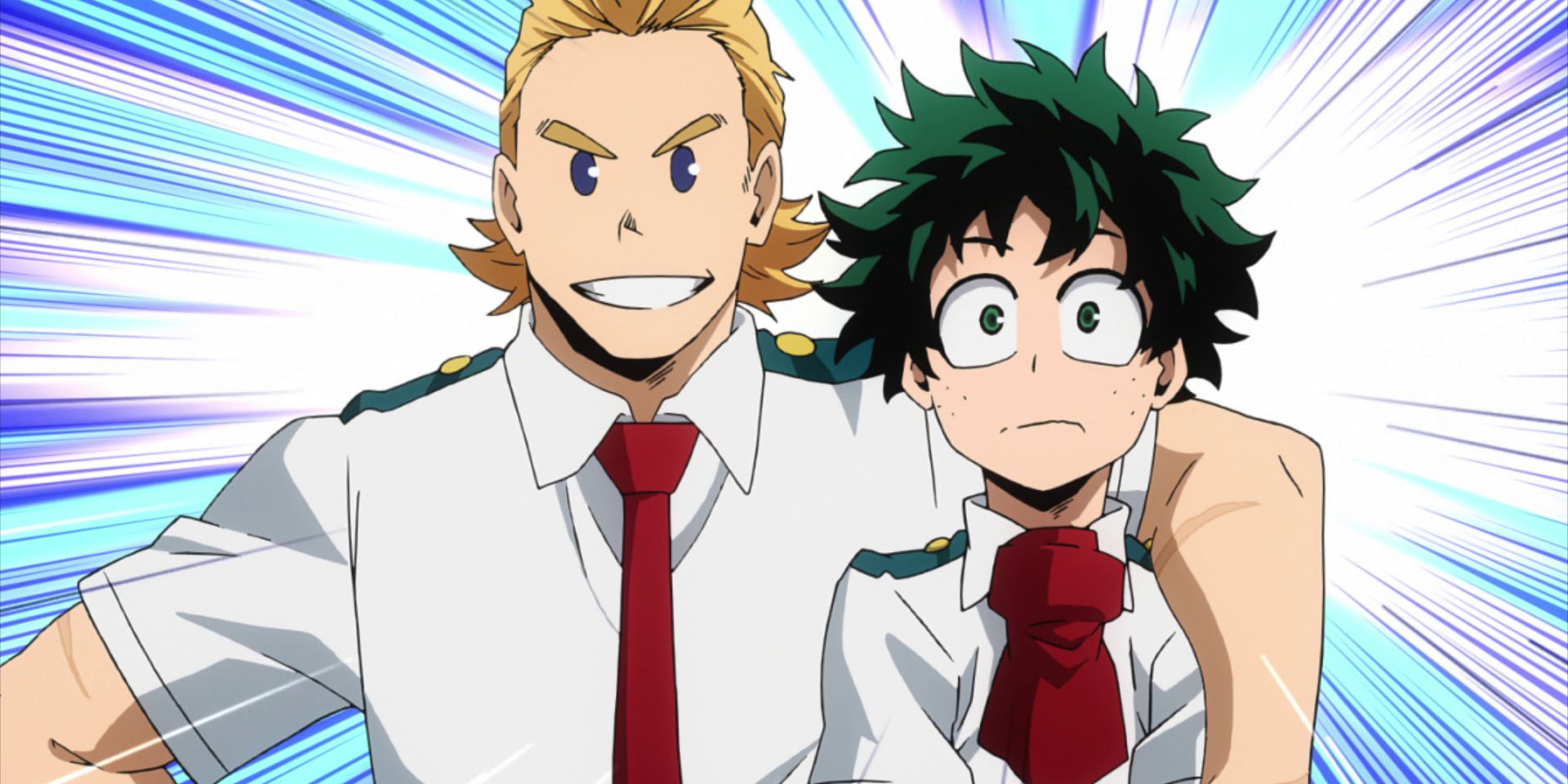The My Hero Academia fandom revolves around just as much character shipping as any other major franchise. For the most part, this practice isn't so much based around fan theories founded on hard evidence than it is a way for fans to express their love for and investment in the original source material. Sometimes, this even helps them to identify and express part of themselves within a fictional world that is otherwise underrepresented.
This is why the sexuality of the characters being shipped together does not always match up with their sexuality as presented in the original work. For My Hero Academia's Deku, whose sexuality is something of a misnomer within the canon, the subject draws a great deal of speculation within the fandom.
One of the most popular ships in the My Hero Academia community is Deku and Bakugo, largely because enemies-to-lovers is the most common shipping trope. And, why not? It's very easy, and somewhat cathartic, to transmute the intensity of a rivalry into feelings of attraction. All of the anger can easily be interpreted as a frustration stemming from the inability to communicate true depths of feeling... the fanfic practically writes itself. However, there is also a great deal of fan fiction and fan art depicting Deku having romantic feelings for virtually every other character in the manga/anime, demonstrating a shift in Deku shipping in a more concrete direction, toward a shared headcanon that identifies the protagonist as being either bisexual to pansexual.
The term "headcanon" is important to highlight here, as that there is no hard evidence (as of yet) to be found anywhere within the anime or manga that puts put a clear label on Deku's sexuality, whether that be heterosexual or otherwise. However, following the typical shonen pattern, it's pretty obvious that Midoriya is set up, from the first episode, to end up in a relationship with Uraraka Ochaco. It's also been made clear that she has feelings for him, but as for reciprocation, we've seen a minimal amount from him. Instead, Deku has expressed far greater depths of emotion in some of his other relationships.
The safest bet is clearly on Deku and Uraraka becoming the future power couple of the hero-dominated world, but it's this predictable outcome that lies at the heart of the interest in and reinterpretation of Deku's identity.
A big part of this is that Deku does not spend nearly as much time acting on his sexuality -- whatever it may be. In the absence of him displaying any, or at least, very little romantic interest or impulses, it's easy to graft almost any identity onto him.
The second major alteration is the emotionality Deku presents. It's true that Naruto perfected and (let's face it) over-did, the art of the emotional flashback but these often took place so far back in a character's past that any emotional "weakness" could be attributed to their being children, and in the present was, for the most part, only reflected as the anger or determination -- some of the only emotions men in patriarchal culture are allowed to publically display. Deku, on the other hand, expresses a far broader emotional spectrum in the present and achieves victories (specifically his battle with Todoroki) that depend more on his ability to empathize than his fighting prowess.
To put a point on it, he is only given One For All in the first place because of his ability to care so deeply for Bakugo. Naruto, Goku and Luffy want to be the best; Midoriya simply wants to help people.
Of course, none of this makes him necessarily queer, it simply demonstrates that he presents a more non-traditional form of masculinity than we're used to seeing from these types of characters. Rather, Deku's marked differences as a shonen protagonist simply make it easier for fans to seriously identify with him in ways that weren't truly possible with most of his predecessors. This includes, but isn't limited to, viewing him as a member of the LGBTQ community. Beyond that, there is a serious argument to be made for his Quirkless status "othering" him within hero society in a similar way that being queer "others" people in a heteronormative society.
While these can be seen as subtle alterations on a time-tested formula, it only makes sense for the anime of a new generation to reflect more modern ideals, specifically within a genre that has a large influence over young people. Shonen manga and anime have precious few canonically LGBTQ characters as it is, let alone the lead protagonists of major franchises. Confirming Deku fans' headcanon would be a huge, progressive step forward. But, in the very least, continuing to leave his identity up in the air gives them ample room to fill in the blanks for themselves.




